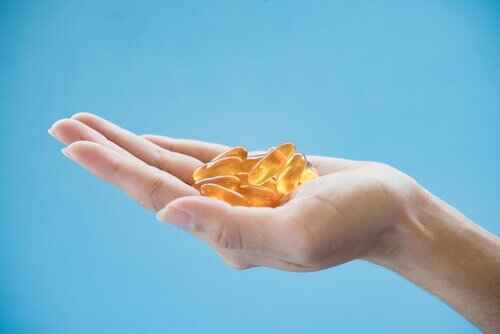
Mar 31 , 2024
Are mushrooms good for kidney patients?
This question often arises among individuals with renal concerns, seeking dietary options that are both flavorful and beneficial for their health.
Mushrooms, known for their rich umami flavor and diverse culinary applications, have garnered attention for their potential health benefits.
In this blog, we delve into the relationship between mushrooms and kidney health, exploring their nutritional profile, potential benefits, and considerations for individuals with kidney issues.
While mushrooms offer an array of vitamins, minerals, and antioxidants, their high potassium content may pose challenges for some kidney patients.
However, certain varieties such as white button mushrooms are lower in potassium and may be consumed in moderation.
By examining the available research and expert opinions, this overview aims to provide clarity on whether mushrooms can be included in the diet of kidney patients and how to do so safely and responsibly.
Are mushrooms good for kidney patients? Let's explore further.

Here are some benefits of Mushrooms.

Including mushrooms in your diet can help lower cholesterol levels, especially shiitake mushrooms.
They are a great alternative to red meat, with low fat, low calories, and no cholesterol.
Shiitake mushrooms have special compounds that not only stop the body from making cholesterol but also prevent it from being absorbed, reducing the overall cholesterol in your bloodstream.

Eating mushrooms regularly can help protect your brain health.
Research shows that consuming more than two cups of mushrooms per week can reduce the risk of mild cognitive impairment (MCI) by 50%.
Even just one cup of mushrooms a week can provide some benefits.
The study included different types of mushrooms such as golden, oyster, shiitake, and white button mushrooms.
MCI often causes memory and language problems and may be a precursor to Alzheimer's disease.

Eating a small amount of mushrooms every day can significantly reduce your chances of getting cancer.
Studies have shown that just 18 grams of mushrooms per day, which is about two medium-sized mushrooms or a small handful, can decrease the risk by as much as 45%.
Mushrooms help prevent damage to cells due to their powerful antioxidant called ergothioneine.
Different types of mushrooms like shiitake, oyster, maitake, and king oyster have higher levels of ergothioneine, but any kind of mushroom can still lower the risk of cancer when added to your daily diet.
lowering the intake of sodium can help lower your blood pressure.
Sodium causes excess fluid to accumulate in your body, which can increase blood pressure.
Adding mushrooms to your diet can help you reduce sodium intake.
Mushrooms are naturally low in sodium.
For example, a whole cup of white button mushrooms has only five milligrams of sodium.
They add a delicious salty flavor to your food, meaning you won't need to add much salt.
Research from the Culinary Institute of America and UC Davis found that replacing half of the meat with mushrooms in a typical ground beef recipe can keep the flavor while reducing sodium intake by 25%.

Mushrooms are unique among fruits and vegetables because they contain vitamin D.
While many people get vitamin D from supplements or sunlight, you can also get it from mushrooms.
Some mushrooms, like white button, portabella, and cremini, boost their vitamin D levels when exposed to UV light or sunlight.
Simply slice three mushrooms (or one portabella), let them soak up sunlight for at least 15 minutes, and enjoy.
Alternatively, eating a bit over one cup of maitake mushrooms gives you the same vitamin D benefits without needing sunlight exposure.
Eating mushrooms can help keep your immune system strong.
Different types of mushrooms contain different nutrients, like cremini and portabella mushrooms containing Selenium which protects cells from damage.
Maitake mushrooms contain vitamin D, which helps to boost immune function.
And shiitake mushrooms contain vitamin B6, which helps your body make vital components like red blood cells and DNA.
Including a variety of mushrooms in your diet can support overall immune health.

Eating mushrooms can help promote a healthier gut.
Your gut microbiome, which includes bacteria and organisms, affects your overall health and mood.
Mushrooms contain prebiotics, like polysaccharides, which help to nourish the growth of good bacteria in your gut.
Unlike some foods that break down in the stomach, mushroom polysaccharides pass through unchanged and reach the colon, where they encourage the growth of good bacteria.
Factors To Consider Before Eating Mushrooms For Kidney Patients
Here are some factors to consider.
While mushrooms are generally healthy, some varieties contain higher levels of potassium, which can be a concern for individuals with kidney issues.
Potassium is essential for nerve and muscle function, but high potassium levels can be dangerous for people whose kidneys are not functioning properly.
Certain mushrooms, like shiitake and portobello, have higher potassium content than others.
Another consideration for kidney patients is the presence of phosphorus in mushrooms.
Phosphorus is a mineral that, in excess, can be harmful to individuals with kidney problems as it can lead to mineral imbalances and bone issues.
While mushrooms are not exceptionally high in phosphorus compared to other foods, kidney patients should still be cautious and monitor their phosphorus intake, especially if they consume mushrooms regularly.
Sodium intake is an important consideration for kidney health, as excessive sodium can lead to fluid retention and increased blood pressure.
While mushrooms themselves are naturally low in sodium, the preparation methods used in cooking can significantly increase their sodium content.
For kidney patients, it is important to choose low-sodium cooking methods such as roasting, grilling, or sautéing with minimal salt.
Additionally, choosing fresh mushrooms instead of canned varieties can help reduce sodium intake.
Individual tolerance to mushrooms may vary, particularly among kidney patients.
Some people may experience gastrointestinal discomfort or other adverse reactions when eating mushrooms, which may aggravate existing kidney problems.
Kidney patients need to pay attention to their bodies and limit or avoid mushrooms if they notice any discomfort or adverse effects.
Consulting with a healthcare provider or a registered dietitian can provide personalised guidance on incorporating mushrooms into a kidney-friendly diet.
Mushrooms offer a variety of health benefits, including potential benefits for kidney patients.
While they add delicious flavour to the meals and contribute to overall well-being, there are also some considerations for people with kidney problems.
High levels of potassium and phosphorus in some varieties of mushrooms, especially in preparation methods with high sodium content, may pose a risk to kidney patients.
Additionally, individual tolerance to mushrooms and potential discomfort should be taken into account.
Therefore, kidney patients should be mindful of their mushroom choices, choose low-sodium cooking methods, and monitor their intake to support kidney health.
Consulting with a doctor or dietitian specialising in renal nutrition can provide personalised guidance for incorporating mushrooms into a kidney-friendly diet while addressing specific dietary needs and concerns.
